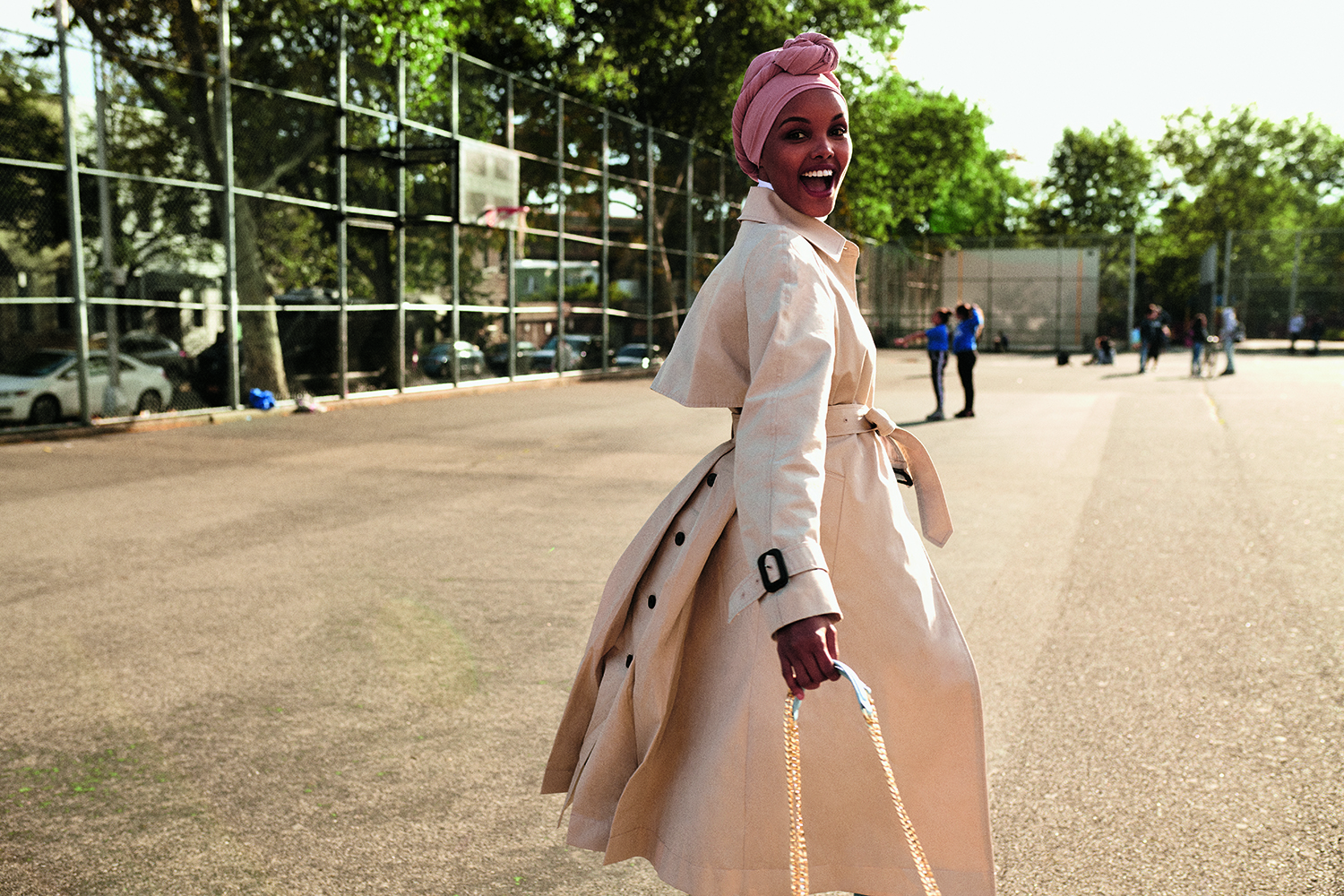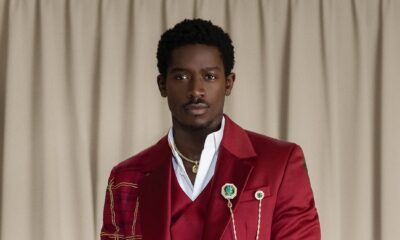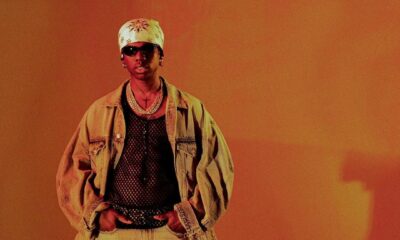Style
BN Exclusive: Tommy Hilfiger Takes A Bold Approach to Sustainability With Its Make It Possible’ Programme
Tommy Hilfiger is launching sweeping reforms in its business, in a bid to create an even more circular focus, and to show consumers they are very serious about it, their plan, unveiled publicly today, is ‘ driven by a vision to ‘Waste Nothing and Welcome All’ lists 24 comprehensive sustainability, inclusivity and human rights goals by 2030 that cover circularity, inclusivity in its product lines and economic opportunities afforded to workers within its supply chain.
Unlike most brands, who focus mostly or solely on waste or water use or supply chain concerns, the ‘Make it Possible’ strategy plans to go beyond the usual corporate sustainability goals. It heralds a new era where new business models and deeply engaged supply chain relationships can improve sustainability and labour practices for a more holistic ethical and sustainable business overall. Tommy Hilfiger’s program is powered by parent company PVH Corp’s Forward Fashion strategy, a set of 15 priorities designed to reduce negative impacts to zero, increase positive impacts to 100%, and improve the over 1 million lives across the company’s value chain.
 Make it Possible marks the latest milestone in Tommy Hilfiger’s sustainability journey. More recently Tommy Hilfiger launched its People’s Place Program to advance the representation of black, indigenous and people of color (BIPOC) communities within the fashion and creative industries.
Make it Possible marks the latest milestone in Tommy Hilfiger’s sustainability journey. More recently Tommy Hilfiger launched its People’s Place Program to advance the representation of black, indigenous and people of color (BIPOC) communities within the fashion and creative industries.
In a BellaNaija Style exclusive: founder Tommy Hilfiger and Martijn Hagman, CEO, Tommy Hilfiger Global and PVH Europe sit down for a short Q&A to enlighten us on what this journey to sustainability will take shape
2020 marks Tommy Hilfiger’s 35th anniversary – how has the brand’s heritage influenced Make it Possible?
TOMMY: Make it Possible is founded on the notion of relentlessly pursuing what you believe. When I opened my first store, People’s Place, in 1969 in my hometown of Elmira, it was a place for people from all walks of life to come together to share exciting pop culture experiences, exchange ideas and challenge social norms. Inspired by this inclusive spirit, we recently launched the People’s Place Program, dedicated to advancing minority representation within the fashion and creative industries. The new program builds on the inclusive spirit of our brand and the mission of Make it Possible to make fashion the ‘Wastes Nothing and Welcomes All.’
Make it Possible includes some very ambitious targets, how will the brand succeed in achieving these?
TOMMY: We are committed to creating fashion that wastes nothing and welcomes all. With hard work, partnership and a positive outlook, anything is possible, even when facing some of our biggest challenges yet. We know that one fashion brand can’t do this alone, so we’re working with our diverse community of associates, industry partners and other brands and organizations around the world to make our vision a reality.
MARTIJN: Make it Possible was co-created by our associates across the globe. As experts within our business, they have helped to build a strong foundation which will contribute to the success of this program. We also acknowledge that in order to achieve our targets, we need partnership both within and outside the fashion industry. We know it isn’t going to be easy, and that innovation, agility and collaboration will be key. We will continuously be reviewing and assessing where we stand, making necessary pivots along the way and doing everything we can to create fashion that ‘Wastes Nothing and Welcomes All’ to contribute to a better fashion industry.

Will Make it Possible change what consumers see from TOMMY HILFIGER?
TOMMY: Our consumers will always be at the heart of everything we do. They are looking to us to lead the way in sustainability, from how we market and model our clothing; how we create and produce the collections they see; and how and where they can purchase our products — all without compromising quality. As we continue making sustainability strides with Make it Possible, consumers will still see the TOMMY HILFIGER that they’re used to, but with more diverse representation in our campaigns, more options and formats for them to shop and more sustainable styles that authentically reflect current and future TOMMY consumers.
How has the recent BLM movement impacted TOMMY HILFIGER’s approach to social sustainability?
TOMMY: From the earliest days of the brand, we have always collaborated with a diverse representation of artists, models and visionaries and pushed the boundaries of what the fashion industry stands for. We know we must take our commitment further, so we recently launched the People’s Place Program, to advance the representation of BIPOC within the fashion and creative industries. Making bold statements of what fashion should look like, we have authentically celebrated and proudly portrayed models from a wide diversity of backgrounds, sizes, ages, gender expressions and ethnicities. We will continue using our platforms to create opportunities and stand up for what is right.
MARTIJN: Social sustainability represents half of our Make it Possible program. As a company, we haven’t done enough, but we are determined to do better... We’re also making immediate internal strides to become a more informed, unbiased organisation with a strong sense of belonging. The company has launched a Comprehensive Action Plan as the starting point in its journey to further address discrimination, injustice, inequality and racism. With the resources and resolve to push for positive change, we are determined to contribute to a better fashion industry.
Why is Make it Possible needed?
MARTIJN: It has never been clearer that now is the time to take real action. Recent events have shown us that the responsibility to make a positive impact on our industry and beyond is directly in our hands. Despite there being more challenges than ever, we are committed to using our platforms for good. Driving and activating change is inherent to who we are as a brand and we are working to create a meaningful, long- term impact that makes our environmental and social sustainability commitments a reality.
How does Make it Possible stand out from other sustainability strategies out there?
MARTIJN: Our commitment to create fashion that ‘Wastes Nothing and Welcomes All’ is embedded in our business and is something that our more than 16,000 global associates work towards every single day. We are continuing to challenge one another to think about how we can make our products and brand more circular and inclusive at every step along the value chain, from ideation and design, to marketing, production and sales. Make it Possible is the continuation of a journey that we have been on for over 35 years and is just one way we will work together to make a meaningful and lasting contribution to a better fashion industry.
How has the coronavirus pandemic impacted Tommy Hilfiger’s vision and prioritization of sustainability?
MARTIJN: We are more sustainable, aligned and agile than ever before. COVID-19 has only accelerated how we’re thinking about sustainability, from our products, to our processes, to our people. The pandemic forced us all to think differently — to let go of traditional ways of working and seek innovation that furthers our vision in the context of this new world. Now more than ever, we share a responsibility to find solutions that will that will preserve our world’s resources, encourage inclusivity and build a more sustainable future focused on circular principles and inclusivity.
For more information on Make it Possible and a full overview of achievements to date, visit:
www.sustainability.tommy.com




















